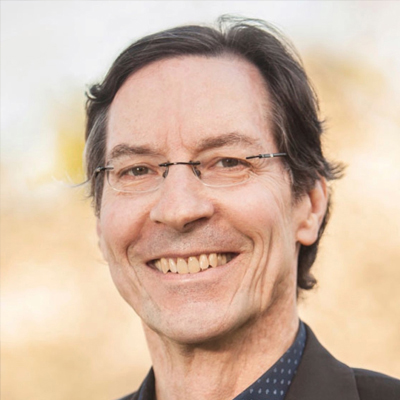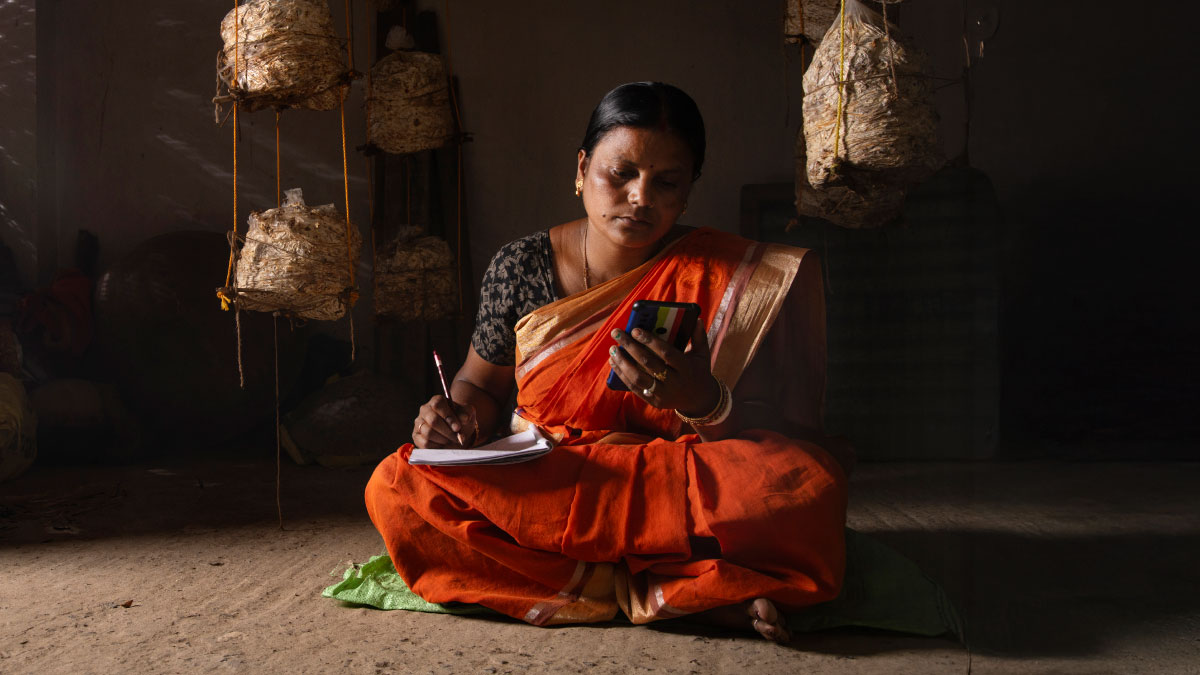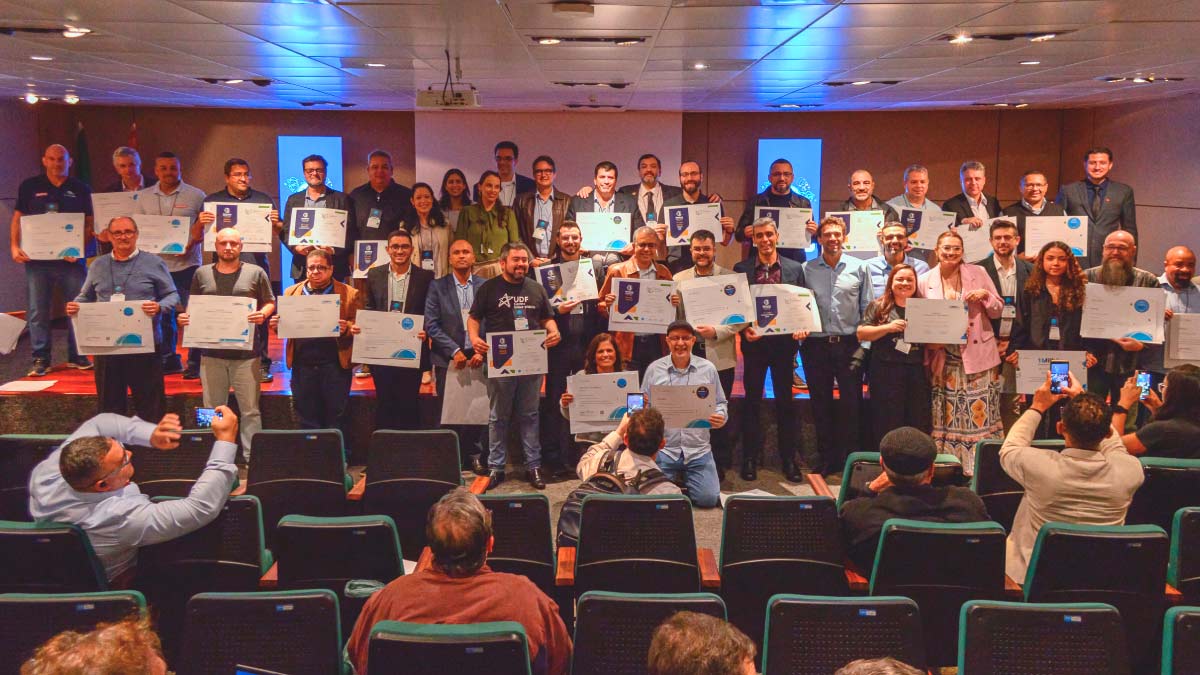When Cisco’s Country Digital Acceleration (CDA) program began in 2015, it represented a radical new concept: that a global technology company could bring together nations’ industry, government, and academic leaders to co-innovate solutions to major societal problems.
If anyone had doubts, they were soon dispelled.
Ten years on, CDA has brought positive change to 50 countries around the world, helping to transform everything from coffee farms in Tanzania and floating classrooms in the Amazon to energy grids in Spain, network infrastructure in Ukraine, and smart cities in India (to name but a few).
So, for Cisco, it’s an important anniversary and a time to celebrate all that CDA has accomplished — in AI, education, healthcare, sustainability, transportation, agriculture, cybersecurity, and more — along with the good it can continue to drive.
One reason for CDA’s success is the leadership of Guy Diedrich, Cisco’s senior vice president and global innovation officer.
“It's a privilege and an honor to work with these countries around the world,” said Diedrich, who has been a prime mover behind CDA since its start. “We have created 1,600 individual digitization projects in every vertical imaginable. And the number of people that CDA has impacted is well into the tens of millions, if not hundreds of millions.”
Cisco’s technology and expertise underlie those 10 years of success. But Fran Katsoudas, Cisco’s EVP and chief people, policy, and purpose officer, also highlighted the role that human relationships have played.
“You have built trust with people around the world, and that is not easy to do,” Katsoudas stressed in congratulating CDA on its anniversary. “And your impact is not only good for Cisco from a business perspective, it's amazing for the world.”
Building that trust starts at the top. And Cisco CEO Chuck Robbins called out the importance of engaging high-level government leaders in the early stages of each project.
“I have the benefit of having been involved when we created this program a decade ago, and it has been hugely powerful,” Robbins said. “It's so logical. If we're going to invest in a country, let's align those investments with the priorities of the head of state in the country. It makes us a better citizen in that country. And it makes us more impactful.”
When doing good is good for business
Like Diedrich and Robbins, Chris Reeves — vice president of Cisco’s Digital Impact Office for Europe, Middle East, and Africa (EMEA) — has been with CDA from the start. And he shared his thoughts on how the program has evolved during its 10 years, while, at its core, remaining the same.
“Over 10 years, the program's changed and adapted to different waves of technology and changing geopolitical landscapes, and it's adapted and grown,” Reeves said. “But I’m also proud that it has remained true to its original concept, which is to use technology to deliver better outcomes for communities, economic growth, and also potential growth for Cisco.”
Indeed, the CDA program has shown that positive change can be good for business.
“The Country Digital Acceleration Program is proof that you can do good and do well,” Diedrich said. “You can benefit the world. You can lift up populations. You can work with societies to help them take advantage of new opportunities. And you can make money along the way.”
That kind of success, Diedrich believes, creates the potential for doing more good.
“Some people think that somehow if you're making a profit, it diminishes your purpose,” he continued. “I think the exact opposite is true. If you can fulfill your purpose and drive revenue and provide value to the company, then it makes it sustainable. In fact, purpose and profit are not mutually exclusive. They're completely compatible.”
A round of global applause
The spirit trust and cooperation infused the responses of CDA’s partners around the world, starting with Milan, Italy. With Cisco’s help, the city has driven a wide range of smart city, educational, health care, and transportation initiatives, along with creating a Cybersecurity Co-innovation Center.
Giuseppe Sala, Milan’s mayor, looks forward to many more years of collaboration.
“Over the past decade, CDA has made remarkable contributions to driving innovation and digital transformation in our city and across the globe,” he said. “Wishing continued success in shaping a more connected and sustainable future for all.”
As regards education, Diedrich stresses that every CDA initiative will include a skills component. So CDA is closely aligned with the Cisco Networking Academy, the largest company-led digital skills program of its kind.
Irais Barreto Canales, of Mexico’s Anti-Corruption and Good Governance Ministry, gave CDA high marks for its many initiatives to better Mexican society. But she called out two that were especially close to her heart.
“Digital Skills for Mexican Women of the 21st Century,” she explained, “is a program in which we have certified nearly 2,000 women in specialized courses representing over 600,000 training hours. The other one was the Digital Skills for Nurturing, which is about growing new companies. These are great examples of how our collaboration with Cisco has increased our digital skills.”
Another project showing the scope and reach of CDA and Networking Academy is the Senac Ferry School, which brings professional training to riverside communities in the Brazilian Amazon.
Born from a longstanding partnership between CDA and Senac — one of Brazil’s leading professional education institutions — the project provides access to technology, connectivity, and knowledge in remote areas. Courses in IT and other fields combine Cisco’s tech expertise with Senac’s educational infrastructure. It’s an initiative that develops essential job market skills, promotes citizenship, and expands opportunities in hard-to-reach regions.
“The people that Senac serves can now access the internet and can access Cisco courses,” said Anna Beatriz, director of professional education at Senac Brazil, “and this transforms lives. Technology courses and free connectivity weren’t accessible to these populations, but now they are.”
Smarter cities, schools, traffic, and more
At the same time, powerful new network solutions are giving Japanese schools a big boost. Cisco and CDA’s GIGA schools package includes Cisco and Meraki networking equipment to create a robust, futureproof network, enabling all-new experiences in K-through-12 education. Webex boards and Cisco Wi-Fi are part of what make learning more fun and effective.
Smart cities have been a keystone of CDA efforts from the start. In India, for example, CDA played a pivotal role in the country’s Smart Cities Mission. And cities like Vijayawada, Gandhinagar and Hyderabad featured Cisco solutions around Wi-Fi, security, smart parking, smart lighting, improvements in transportation, and additional command and control centers.
The Indian government is enacting a bold plan to create 100 smart cities across the country. And CDA looks forward to continued leadership in these efforts, improving connectivity, economic opportunity, sustainability, quality of life, and more.
Speaking of quality of life, in Australia, as in many countries, traffic is a serious issue. So, CDA partnered with Transport for NSW to take smart traffic management to next levels. This included deploying AI, Wi-Fi, and edge computing for real-time analysis of traffic patterns.
"The system is being used to manage congestion more efficiently, to improve the safety of our network, and to improve the customer experience,” said Chris Bennetts, head of technology and innovation, TfNSW. “The future is upon us. The next 3 to 5 years is going to be a game-changer."
Looking to a future that’s more sustainable and equitable
The climate crisis affects us all, so energy grids and renewable energy are key focus areas for CDA.
“We’ve worked very closely with utility companies around the world to help them transform their networks,” said Reeves. “So, they're digitally powered networks and they can respond to the distributed generation of carbon free energy and also the distributed usage of it, from things like autonomous vehicles. So, we've used Cisco's technology to help the utility companies adapt as they've moved to more sustainable solutions.”
Among CDA’s partners is Ikusi, an advanced technology services company that has partnered with CDA on digitizing electricity grids. And Javier Aguilera, managing director of Ikusi Spain, shared some thoughts on working with Cisco and CDA.
“At Ikusi, we have had the privilege of participating in various projects with the Cisco CDA program,” he said. “The latest and most exciting of this is a pioneering project focused on the digitalization of electricity grids in Spain. The Cisco CDA program represents innovation, collaboration, and a commitment to driving digital transformation.”
CDA’s efforts in war-torn Ukraine show how it can respond in some of the most challenging conditions. In addition to its Medibus, a rolling healthcare center that has supported refugees, CDA has helped strengthen and secure Ukraine’s infrastructure while building important educational and skills resources — all of which will be critical as Ukraine anticipates its long struggle to rebuild.
“Our partnership with CDA is a pivotal investment in Ukraine’s and the world’s digital future,” said Valeriya Ionan, deputy minister for Eurointegration at the Ministry of Digital Transformation of Ukraine. “While words cannot fully express our gratitude, our projects speak for themselves. We’re looking forward to the next 10 years.”
Those next 10 years are on the minds of all who are involved in the CDA program. In supporting a future that’s more sustainable, equitable, and connected, CDA is just getting started.
“I’m sure this success story will go on because the disruptive technologies are changing fast than ever before,” concluded Oliver Tuszik, president of Cisco’s Europe, Middle East and Africa region (EMEA). “And no matter in which country we are, they're all looking for help from a reliable partner like Cisco.”





